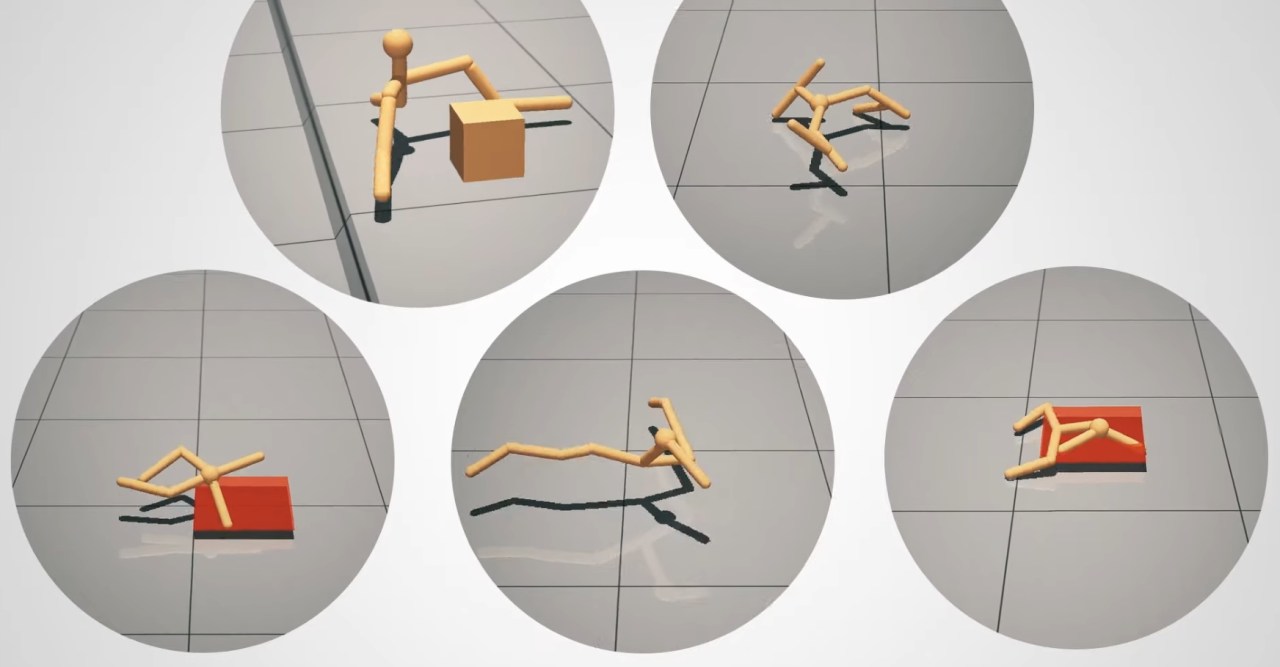Artificial Intelligence (AI) often conjures up images of algorithms operating independently of any physical form. However, recent research highlights an intriguing proposition: what if combining a digital mind with a “body” could enhance AI performance? This perspective pulls inspiration from evolutionary biology, examining how the interplay between cognition and physical capabilities can foster greater adaptability and problem-solving skills. Let’s explore the fascinating world of simulated AI creatures that challenge conventional notions of intelligence.
The Birth of the “Unimals”
At the heart of this exploration are the so-called “unimals,” a playful take on universal animals created by Stanford scientists. These virtual creatures were designed not simply to traverse a digital landscape but to learn and grow through their experiences. Initially simplistic in design, these unimals were made up of geometric shapes capable of basic movements. However, the real innovation was not just about movement but about how these unimals could evolve both physically and cognitively in complex simulated environments.
Evolution Meets Learning
In classical experiments, AI agents were subjected to flat terrain, leading to a somewhat stagnant growth of capabilities. In stark contrast, the Stanford experiment introduced unimals to varied terrains with hills, steps, and obstacles, thereby allowing both evolution and learning to happen simultaneously. Agrim Gupta, one of the co-authors, pointed out that prior research often overlooked the essential learning process that comes from interacting with diverse physical challenges. This new study effectively bridged the gap between evolution and learning.
Complex Environments Yield Unique Benefits
- Faster Learning: Unimals exposed to intricate terrains learned new tasks significantly quicker than their flatland counterparts. Their ability to adapt through experience translated to a refined capacity for problem-solving.
- Enhanced Morphologies: Not only did the environment influence learning, but the evolutionary process also favored body types better suited to handle challenges. For example, unimals with versatile builds thrived in the competitive arena, outperforming those that remained physically static.
- Adaptive Mechanisms: The experiment highlighted the importance of crafting bodies that could adapt swiftly, allowing learned behaviors to be displayed earlier in an unimals’ lifecycle, an essential factor in their development.
Potential Implications for Future AI
The significance of this research extends far beyond simple animations of virtual creatures. In real-world applications, such as designing robots that need to navigate complex terrains, the insights gleaned from unimals can catalyze breakthroughs in automation and AI development. Instead of manually programming movement patterns, engineers could allow AI agents to evolve their physical capabilities alongside cognitive ones, potentially leading to more efficient and adaptive machines.
Envisioning Real-World Applications
- Robotics: Imagine a four-legged robot adapting its gait to climb stairs or traverse uneven surfaces, learning from real-time interactions instead of pre-programmed instructions.
- Automation: Complex manufacturing processes could see a transformation by leveraging AI systems that learn and adapt to variable conditions on the fly, enhancing efficiency and productivity.
- AI in Games: The concepts behind unimals may also redefine how AI is utilized in gaming, leading to characters that can evolve and adapt to player strategies, creating dynamic and challenging experiences.
Conclusion
The tantalizing discoveries surrounding the evolution of unimals illuminate the necessity for a more integrated approach to AI development. Bridging cognitive capabilities with physical bodies could revolutionize how machines learn and apply knowledge in real-world scenarios. As we foster a deeper understanding of the mind-body relationship in AI, we unlock innovative pathways that could not only enhance automation but also allow for tailored solutions across various industries.
At **[fxis.ai](https://fxis.ai)**, we believe that such advancements are crucial for the future of AI, as they enable more comprehensive and effective solutions. Our team is continually exploring new methodologies to push the envelope in artificial intelligence, ensuring that our clients benefit from the latest technological innovations. For more insights, updates, or to collaborate on AI development projects, stay connected with **[fxis.ai](https://fxis.ai)**.

